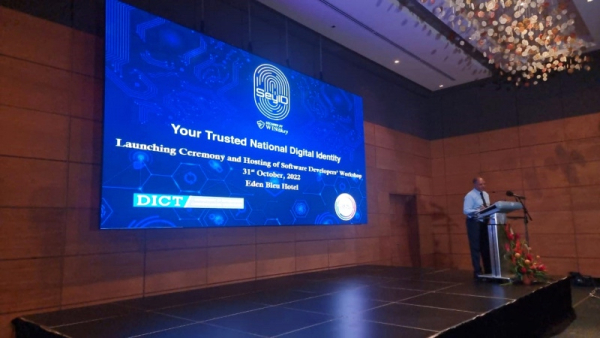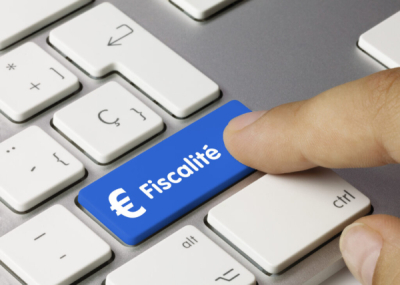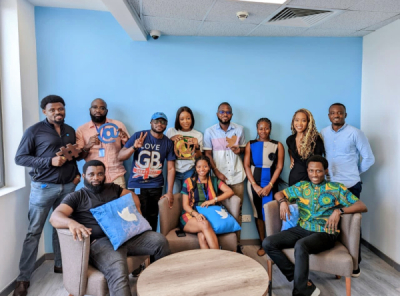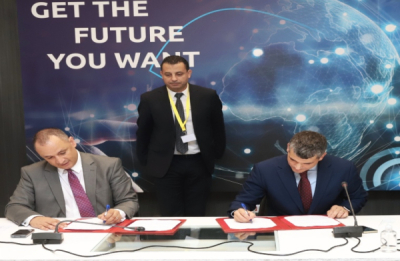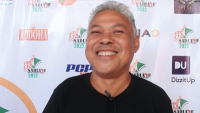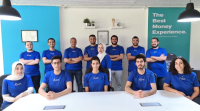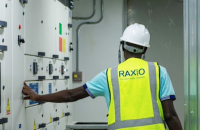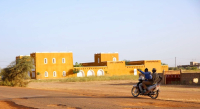In Africa, the coronavirus pandemic has accelerated the development of the e-commerce sector. The development calls for better structuring to streamline the sector and make it more efficient.
Lome will host a national e-commerce seminar from November 10 to 11, 2022. The seminar initiated by the Togolese Ministry of Trade is being organized in partnership with the World Trade Organization (WTO).
It aims to teach young Togolese entrepreneurs how to use new online marketing platforms amid the current acceleration of digital transformations and the rise of the e-commerce sector, which is presented as a major opportunity for economic actors.
New businesses are invited to register their interest in the seminar before November 7. According to the Ministry of Trade, women-led businesses are strongly encouraged to register.
Let’s note that a similar seminar is organized for actors in the textile sector, on the sidelines of the International Exhibition of African Textiles (SITA2022), being held in Lome (November 4 to 6, 2022).
Ayi Renaud Dossavi
In August 2021, Seychelles decided to accelerate its digital transformation for an efficient digital economy. The platform is one of the results of the strategy implemented in that regard.
Seychelles inaugurated, last Monday, "SeyID," its national digital identity platform. According to Vice President Ahmed Afif (photo), the new platform is one of the initiatives carried out by the Department of Information and Communication Technology (DICT) to accelerate the country's digital transformation.
"Having a digital ID through the SeyID platform will not only be a means of proving your identity digitally or accessing digital public or private services. It will also allow you to digitally sign documents, another growing requirement when transacting digitally. Through this platform, digital signing will be far much easier to do compared to what is the case presently,” he said.
According to the World Bank, in 2020, Seychelles’s GDP dropped to a negative 13.5%, due to the coronavirus pandemic, which disrupted economic activities. In February 2021, to diversify and expand its economy, the country announced plans to accelerate its digital transformation. SeyID is one of the results of that plan.
The platform is developed by WISeKey International Holding, a Swiss cybersecurity firm. It will give Seychellois the tools they need to prove their identity online, but it will also facilitate access to many public and private services that choose to integrate with the SeyID platform thanks to interconnecting application programming interfaces (APIs).
The SeyID app is already available on the Play Store. According to Finance Minister Naadir Hassan, “the SeyID platform is based on WISeKey’s WISeID platform which guarantees a high level of Digital Identity and online security.”
It “will be accessible through both web-based and mobile-based applications and both are supported with strong authentication techniques. This is to ensure the security of the SeyID platform users,” he added.
Samira Njoya
The informal sector represents a sizeable portion of African economies. The situation negatively affects tax revenues in all the countries concerned. In Gabon, some tech entrepreneurs have launched an interesting solution that is expected to increase civic-mindedness, and hence increase tax revenues.
Gatax is an automated tax management solution developed by a Gabonese eponymous startup. It allows individuals and companies easy access to tax information.
From a smartphone or a computer, users can register and subscribe to a Gatax package, then fill out the required forms to be informed about the tax system, their tax status, benefits, etc.
The information the platform gives users depends on their subscription. The basic subscription (the free package) gives users information on the tax system and their tax status. Apart from the free package, the startup has three premium ones. The most expensive package gives users complete control over their tax situation by providing details on how to contact tax directorates, how to fill out their tax returns, and receive periodic alerts to avoid penalties.
The startup, which is still being matured at the incubator SING SA, aims to conquer a local market estimated at XOF2.4 billion. It aims to optimize tax collection and fight tax delinquency while empowering SMEs.
Adoni Conrad Quenum
He launched his first business, in 2013, while still schooling. Throughout his ongoing professional and entrepreneurial career, he has received several awards and recognitions. His social venture has also earned him the trust of investors like Base10 Partners.
Kelvin Umechukwu (photo) is a Nigerian tech entrepreneur. He is the co-founder and CEO of Bumpa, a social commerce startup that helps merchants set up their businesses online with no programming skills.
Through Bumpa, founded in 2021, he launched a platform that allows merchants to set up their e-stores using just a smartphone. They can also receive online and offline payments, manage inventories and accounting, fulfill orders, track sales, send delivery requests and engage buyers.
In October 2022, Bumpa, which already claims more than 50,000 SMEs served, completed a US$4 million funding round. It aims to expand its product offering by developing Bumpa 2.0, a more advanced version that will incorporate more social commerce solutions for SMEs.
“The goal is to do three things: connect, innovate and scale. Bumpa 2.0 for us as a startup is to connect all the relevant tools, channels, and places that SMEs need all in one place – the Bumpa app. It is also to innovate by bringing simpler, automated ways to do any business transaction or operation on the app. It is also to scale our user’s businesses, our position as key players in the African commerce industry, and to scale the capacities and reach of the employees and even we, the founders,” said Kelvin Umechukwu.
In 2017, the Nigerian entrepreneur, who is a partner of the Lagos chapter of the Google Developers Group since 2018, founded a social venture that facilitates partnerships and collaboration between innovators, builders, and entrepreneurs who solve local problems. His first venture was Cloudshot Technology Ltd, a tech organization founded, in 2013, to create innovative solutions leveraging technologies.
When Cloudshot Technology ceased operations (in 2017) Kelvin Umechukwu joined the web hosting company HostCabal working as a business developer, from January to June 2018. In April 2018, he joined the nonprofit educational organization TechQuest STEM Academy as a community manager. In September of the same year, the organization promoted him to the position of program manager before he became head of business development, in February 2019.
In March 2020, he was hired, as a program manager, by incubator CcHub Nigeria. In October 2022, he was one of the speakers at the TechCrunch Disrupt conference. Thanks to his ventures, he has won several awards and recognitions. In 2016, Cloudshot Technology Ltd earned him a Leadership Award. Two years later, the same venture earned him CodeFest Nigeria Partnership Award. Thanks to TechQuest STEM Academy he also won the IDOS Challenge 2019 sponsored by the foundations “Haus der kleinen Forscher” and Siemens. In 2021, Bumpa was named the Most Innovative Business Management Solution by the African Excellence Awards.
Melchior Koba
The Ghanaian headquarters is the first opened by the micro-blogging platform in Africa, sixteen years after its creation.
US microblogging platform Twitter has officially inaugurated its Ghanaian headquarters in Accra. It was announced on Tuesday, October 1, by Kafui Sokpe, Senior Associate Director of Twitter Africa. The new headquarters will allow the firm to coordinate the activities of Twitter Africa.
“A year ago Twitter entered Africa via Ghana. Today we officially opened Twitter’s Africa HQ in Accra, and for the first time all [Twitter users] in the region left their home desks and convened to work as one team. Worth celebrating amidst all the back-to-back news headlines,” Kafui Sokpe tweeted.
On April 21, 2021, Twitter announced that it chose Ghana as the headquarters for its African operations due to the country’s appointment to host the AfCFTA secretariat and its openness toward the internet.
"As a champion for democracy, Ghana is a supporter of free speech, online freedom and the Open Internet, of which Twitter is also an advocate. Furthermore, Ghana’s recent appointment to host The Secretariat of the African Continental Free Trade Area aligns with our overarching goal to establish a presence in the region that will support our efforts to improve and tailor our services across Africa,” the platform explained in a statement.
It also indicated it hired 11 people in Ghana, inviting more people to join. With this new office, Twitter follows its biggest rival, Facebook Inc, which opened its first African office in Johannesburg in 2015 and announced, in 2020, a second office in Lagos. The initiative is in line with the growth strategy of Twitter, which aims to become more involved in the communities that fuel daily discussions across the continent.
Samira Njoya
Morocco is currently developing its human capital to become a global tech hub. To do so, it is partnering with various actors.
The Moroccan Ministry of Industry announced, Tuesday (November 2), two memorandums of understanding with international consulting agency Capgemini.
The memoranda aim to create the conditions required to train tech talents and develop the local engineering talent to make the country a leading destination for tech investments.
In a press statement, the government explained that the MoUs would help create 1,500 additional highly skilled jobs in the engineering sector by 2026. The “investment embodies the growing confidence in Moroccan skills and confirms the attractiveness of the Kingdom as a technological and engineering destination of choice for outsourcing,” added Minister of Industry Ryad Mezzour (photo, left).
According to a study financed by the European Bank for Reconstruction and Development (EBRD), Morocco is faced, for years now, with a shortage of engineers and technicians. To address the issue, the government has inked partnerships with several international companies to develop diversified skills and competencies in a range of innovative sectors. In April, the country signed four more MoUs for investment projects that are expected to create over 5, 000 jobs in the outsourcing sector.
CapGemini launched its Moroccan subsidiary in 2007. Since then, it has become the largest tech company in the country. According to Idriss Elasri (photo, right), Managing Director of Capgemini Engineering Morocco, the company hired 800 new staff in 2021 and 1,100 in 2022.
Samira Njoya
Over his decades in the international business world, he has launched many ventures but, through DizzitUp, the most recent one, he wants to leave a strong social impact on the African population.
Solofo Rafenombolatiana (photo) is a Malagasy telecom engineer and entrepreneur. He is also the co-founder and CEO of DizzitUp, a startup founded in 2018, in Togo.
The said startup offers an international marketplace through which Africans, wherever they are, can finance, sell and buy essential renewable energy, food, health, education, tech, and financial products and services anywhere on the continent.
The marketplace was initially built to facilitate access to energy and financial services. In 2021, during an interview with French media Paris Singularity, its CEO explained that the idea germinated in mid-2017, when he noticed that Mada, a small village where he has been a teacher, still had no access to electricity thirty years after he left.
For the businessman, now in his fifties, poor access to energy and financial services is hampering development in Africa. So, apart from its energy-as-a-service business, DizzitUp also developed a decentralized and secure digital infrastructure based on blockchain and stablecoin for instant transfers and payments. The infrastructure allows users to pay or send funds anywhere in the world without being burdened by any constraints.
On October 28, 2022, Solofo Rafenombolatiana was honored, in Lome, Togo, for DizzitUp, which was among the six finalists of the fifth Ecobank Fintech Challenge. Nevertheless, DizzitUp is just one of the many ventures launched by the serial entrepreneur.
In 2000, in Paris, he founded Mobiligense SA, a SaaS mobile value-added services editor and operator. Eight years later, he launched Beezbox SAS, a Paris-based social customer relationship management service provider. In 2014, he also founded Sunny Live Music, a jazz concerts and festivals organizer.
He started his international professional career in 1986, working as a sales support engineer for Wang France. Two years later, he joined Hewlett-Packard as a sales and marketing manager.
After a stint, between 1997 and 2000, as the vice president and general manager at Bull Information Systems, he founded his first company. Concurrently, from 2003 to 2004, he was the vice president and director of Technicolor’s (formerly knowns as Thomson) mobility business unit. Between 2011 and 2013, he was the marketing and digital media director of AFM-Telethon, a French non-profit organization against muscular dystrophy.
Melchior Koba
Fintech is currently the most dynamic segment of the African tech ecosystem. It attracts a significant portion of financings and aims to foster financial inclusion on the continent.
Kiwe is a fintech solution developed by an Egyptian eponymous startup. It allows its users to transfer money in real-time, and quickly pay SMEs. It also helps event managers collect payments.
"We are strong believers in empowering freelancers and business owners by helping them identify their targets, level up their customer experience, and accept online and offline payments. Our vision is for KIWE to become a verb interchangeable with any word that speaks of payments. We strive to have our customers reach out to their phones instinctively whenever a receipt is printed, a cheque arrives at the table, or a friend’s pay-back is due," Kiwe explained in a release in 2021.
To fulfill its set mission, the startup developed a mobile app, accessible for Android and iOS devices. Once downloaded, the app allows users to register their accounts to start making transactions. In addition to the features mentioned above, the app also allows one-scan transactions, positioning itself as a pretty handy tool for making any type of payment. On PlayStore, it has already been downloaded more than 5,000 times.
Last month, it raised an undisclosed amount from vaIU, a subsidiary of universal bank EFG Herme Holding. "With its unique offering and simplified, engaging user experience, Kiwe will benefit greatly from leveraging our vast and ever-growing network of vendors. Hence, this is an investment that promises growth for all," said Habiba Naguib, Head of Strategy and Market expansion at valU.
Adoni Conrad Quenum
According to the report "Data Center Market in Africa - Industry Outlook and Forecast 2020-2025" (ReportLinker), the African data center market is expected to grow at a 12% annual rate and reach US$3 billion in 2020-2025.
Pan-African data center operator Raxio Group announced, Monday (October 31), the launch of construction works for its first data center in Grand-Bassam, 30 km from downtown Abidjan, Côte d'Ivoire. The foundation stone of that infrastructure will be laid tomorrow, November 3, we learn.
"Our primary mission is to help lay the foundations of the African digital economy with groundbreaking technologies aimed at ensuring the performance, security and service levels required to meet information systems’ security needs,” it explains.
Raxio group unveiled its plan to build a data center in Côte d’Ivoire, in October 2021. The plan was in line with the continental expansion plan it launched, in 2019, to meet the African growing demand with ten to twelve more data centers. In the framework of that expansion plan, it currently operates a 1.5MW facility in Kinshasa, while others are under construction in Ethiopia, Tanzania, and Uganda.
According to the group, Côte d'Ivoire is the fastest growing economy in Francophone West Africa. This is notably why it chose it to host its first Tier 3 data center in the region so that it “will serve customers in Abidjan and the wider UEMOA region at a time when digital transformation, data and content consumption, and connectivity are all increasing at historic rates.”
The data center, scheduled to be operational by Q3-2023, will be headquartered at the ICT and biotech park VITIB, in Grand-Bassam. According to the company, Raxio Côte d'Ivoire will offer “customers an optimized environment for their IT equipment in a state of the art, modular facility, fully equipped with industry best in technology, security, AC/DC power compatibility and redundancy.”
Samira Njoya
In recent years, Africa’s booming tech ecosystem has attracted several investors. This dynamic environment encourages the development of various tech solutions to address local issues.
Nawali is a real estate platform developed by a Senegalese start-up, founded, in 2018. It allows the African diaspora to easily acquire real estate properties (from lands to turkey houses) in countries where it is currently active: Senegal, Mauritania, Gambia, Mali, and Côte d’Ivoire namely.
The platform functions like a marketplace where real estate properties are listed, allowing users to acquire any property they are attracted to.
The startup has developed several funding mechanisms allowing buyers to either pay in cash, by installments, or by joining Nawali tontine (a mutual savings scheme that allows users to save collectively and purchase properties at the end of the savings period when they collect the amount saved.)
Nawali also offers its buyers eco-friendly houses made of raw earth bricks. It recently launched a project aimed at building an eco-city in Southern Cameroon. In July 2022, the startup opened a funding round to raise €460,000 to support the project. According to its founder, Aïta Magassa, apart from helping create massive jobs for qualified workers, the project, which is “perfectly adapted to the needs in Africa,” would allow the African diaspora to reclaim its lands.
Adoni Conrad Quenum
More...
By digitizing the pharmaceutical industry, the serial entrepreneur and angel investor wants to facilitate access to health products, therefore contributing to development goals. Over the past five years, his actions have earned him the trust of several investors.
Bryan Mezue (photo) is a Nigerian entrepreneur and investor. He is the co-founder, president, and CEO of Lifestores Healthcare, a healthtech startup that aims to improve access to quality health products and streamline pharmacy management.
With PharmaIQ solution, his startup offers two main services that effectively fulfill its core ambitions. The first service is OGApharmacy, an online B2B pharmaceutical marketplace that lets hospitals and pharmacies source authentic and affordable healthcare products. It combines the supply needs of hundreds of healthcare providers and negotiates with manufacturers and importers on their behalf.
The second solution is an ERP package specifically designed for Nigerian pharmacies. It takes care of the key aspects of pharmacy management, including sales, inventory, acquisition, and expiry notifications.
Bryan co-founded Lifestores Healthcare, in 2017, with Andrew Garza as its chief operating officer. About five years on, on October 4, 2022, he announced the close of a US$3 million pre-Series A round to continue to democratize “access to quality and affordable primary healthcare in sub-Saharan Africa.”
In 2016, he had already founded Banyi Group, an advisory and investment holding group. In 2018, he was one of the members of the inaugural Obama Foundation Leaders program. Some five years earlier he co-founded West Africa Vocational Education (WAVE) Academy, an academy supporting skill development for increased income.
The serial entrepreneur started his professional career, in 2006, as an investment banking summer intern at Barclays Capital. He later joined the London-based consulting firm Bain & Company as a consultant. Between May and October 2011, he was the Director of Operations and Business Development at d.light Design, a renewable energy semiconductor manufacturing company. The following year, he was hired into MyTime's operations, sales, and marketing department. The same year, he completed a professional internship at Actis as a private equity associate before becoming the manager of the management consulting firm Bain & Company.
Melchior Koba
The new director general was appointed to save the public postal company from its various woes.
Senegal’s public postal company “La Poste” will undergo an extensive digital transformation in the coming months, new director Mohamadou Diaïté indicates.
According to the director general, who assumed office last Monday, digital transformation is one of the priorities of the "Strategic Plan for the Expansion of the Post (PSE-P)." The said plan includes actions like the modernization of the company’s logistics, the development of electronic banking and e-commerce, and the addition of innovative financial services.
"It is not conceivable that in 2022 we will still be issuing manual receipts. We need to diversify our products and make up for our lateness to ensure improved profitability,” he said.
In recent years, the national postal company has faced several issues affecting its operations. The issues include low-tech tools integration and poor management of customers’ new ICT needs.
To address the various issues identified, in 2021, the posts and telecommunication regulator ARPT organized a workshop for the development of a new strategy that would modernize the postal sector. The strategy focuses on four areas, including the promotion and use of ICTs to improve the overall performance of the sector.
Mohamadou Diaïté wants to ensure the continuity of the actions suggested. He plans to address the issues by "judiciously exploiting the objective and scalable opportunities presented by the" national postal company. For that purpose, an institutional transformation is needed to create a postal bank, he explained. He added that there is a need to accelerate digital transformation, diversify products and services to cover a broader range and introduce more innovation by strengthening and modernizing logistics, electronic banking, and e-commerce
Samira Njoya
According to the Organization of the Petroleum Exporting Countries (OPEC), global oil demand would grow continually till 2035, driven by developing countries in Africa, India, and Asia. To capture part of that demand and attract investors to its energy sector, Algeria has multiplied initiatives in recent years.
The Algerian Agency for the Valorization of Hydrocarbons Resources (Alnaft) announced, Sunday, the launch of EXALT (EXplore Algeria Today), a digital platform that provides information on the country’s mineral and sustainable resources.
According to Alnaft chairman Nour Eddine Daoudi, the platform is "an unprecedented opportunity in the history of the Algerian energy market.”
“It will allow investors to check new deposits, peruse and assess the national hydrocarbon potential,” he added.
The "fully integrated" tool, developed by international oilfield services provider Schlumberger (SLB), will help demonstrate the value of domestic upstream opportunities. It will also help promote Algeria's hydrocarbon resources thanks notably to future tenders. For Nour Eddine Daoudi, it can be accessed by everyone, everywhere in the world.
Algeria is a notable oil exporter with one of the largest oil and gas reserves in the world. In its World Economic Outlook, published last October 11, the IMF estimates that the country’s economy would grow by 4.7% in 2022, thanks in particular to an increase in its oil export revenues.
Samira Njoya
Computers and smartphones are undoubtedly useful in our daily lives. However, their excessive use can have negative impacts on users’ physical and mental health. It can also negatively affect children’s psychosocial development. To prevent those consequences, Gabon is implementing awareness-raising actions.
Gabon will launch a national digital awareness campaign in the coming months. In a prelude to that campaign, last Friday, it organized a conference under the theme: "The dangers of overexposure to screens: impacts on behavior and health." The national campaign, initiated by consulting agency Blanc Cristal and the rehabilitation center Mot à Mot, is organized thanks to the Ministry of Digital Economy’s support.
According to Virginie Mounanga, CEO of Blanc Cristal, it aims to alert parents on the dangers of overexposure to the Internet and screens. "We have met with several doctors, specialists, and school principals who complain about children and adolescents being addicted to the Internet, cutting themselves off social activities [...] and affecting school performance. So, we need to alert parents and educators of the dangers, allowing them to mitigate those impacts,” she explained.
Gabon, like many African countries, adopted digital technologies to keep socio-economic activities going during the coronavirus pandemic. The pandemic changed internet consumption habits, boosting demand for connectivity. Consequently, the average time spent in front of screens has risen sharply. This caused several health (myopia, sedentarization), behavioral (sleep and mood disorders), and social (language delays, attention disorders, and school difficulties) problems.
According to the professionals who took part in the conference, some measures need to be taken to address the problems. They include limiting internet time, turning off Wi-Fi intermittently, and developing social and family activities.
They also mentioned the Canadian method of limiting screen time for children. According to the specialists, it involves forbidding screens to children before the age of 2 and monitoring usage time for those older than 2.
Samira Njoya



